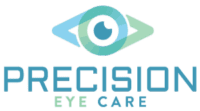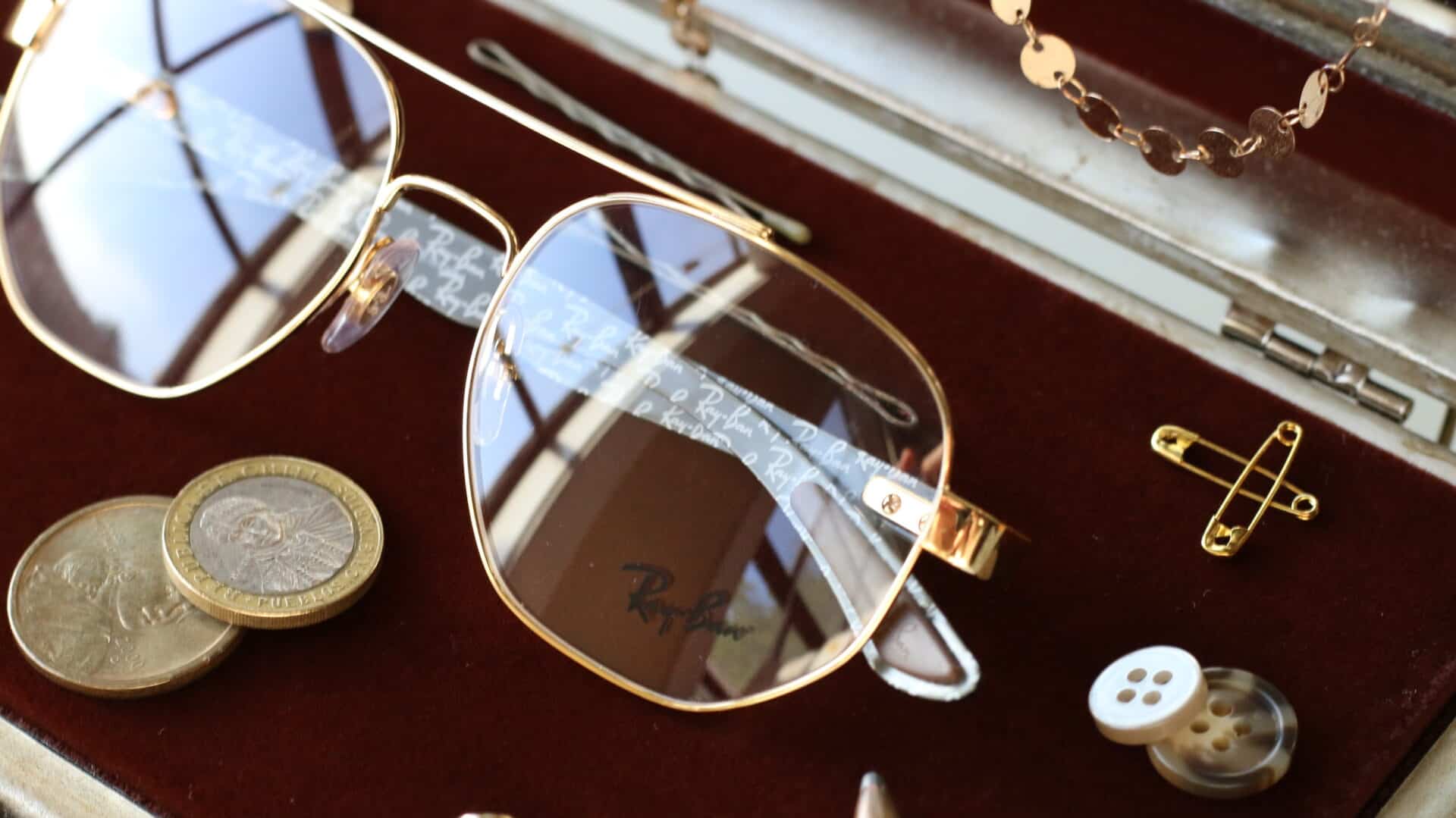Sunglasses
Sunglasses can protect your eyes from harmful UV rays and future ocular diseases. We offer countless stylish options for you to choose from.
Why wear them

Hats Alone Don't Cut It
While hats significantly cut UV exposure, they don’t protect you from sunlight that reflects off of pavement, sand, and water back into your eye. 5-10% of all skin cancers occur on the eyelid with the lower lid being the most frequent site.

Your Eyes Can Sunburn
The condition is called photokeratitis. It is very painful and causes blurred vision, redness, and watering. The most severe form is snowblindness which occurs because snow is 100% reflective. However, even pavement, sand, water, and grass reflect light into your eyes. Don’t chance it.

Suns Improve Driving Safety
Wearing polarized sunglasses improves driving safety by reducing glare refracted off the road and reflected off your dashboard. Sunglasses help drivers react 20% quicker, which can help them stop up to 20 feet sooner!

Kids Need Sunglasses Too
Don’t forget the kids! People get 80% of their UV damage before they turn 18. It’s the cumulative amount of sun damage over the lifetime that leads to cataracts and other diseases. Early protection is the best prevention.
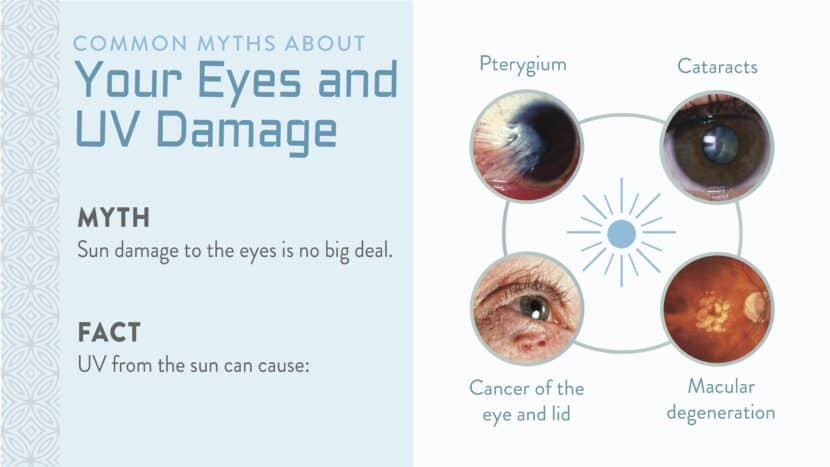
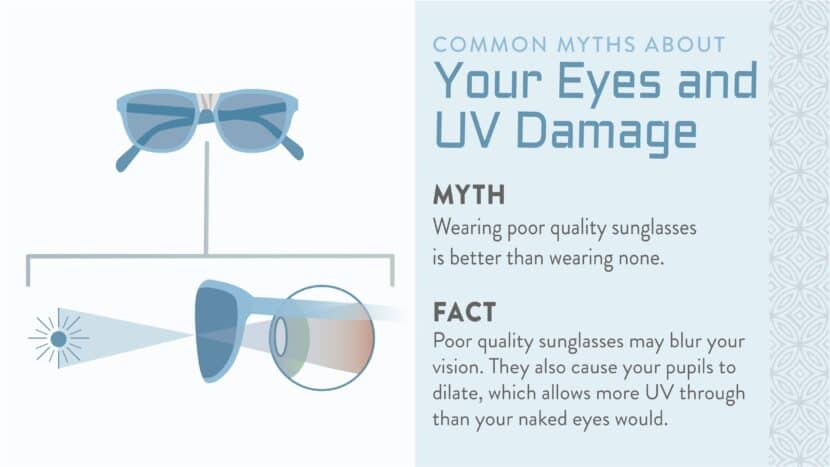
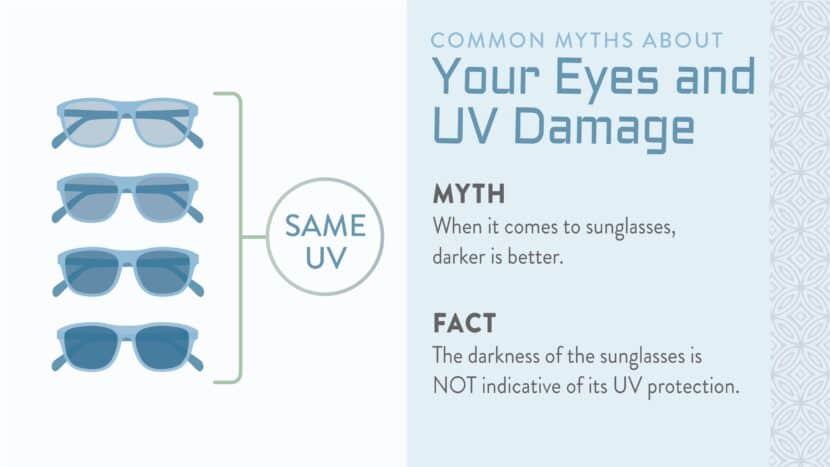
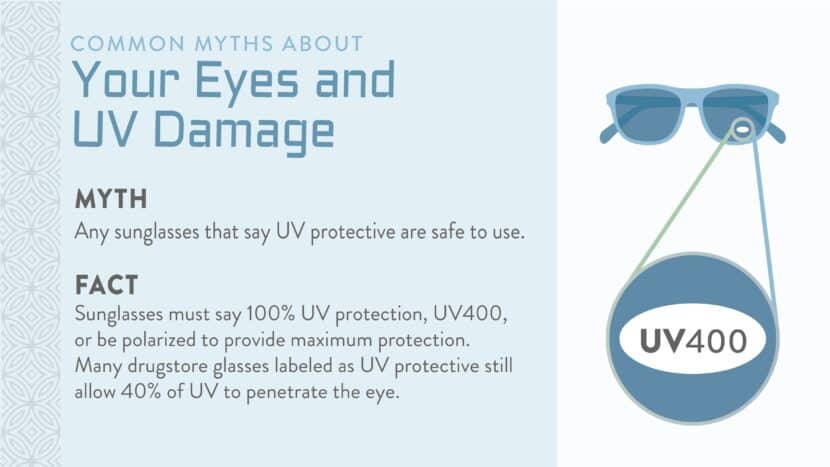
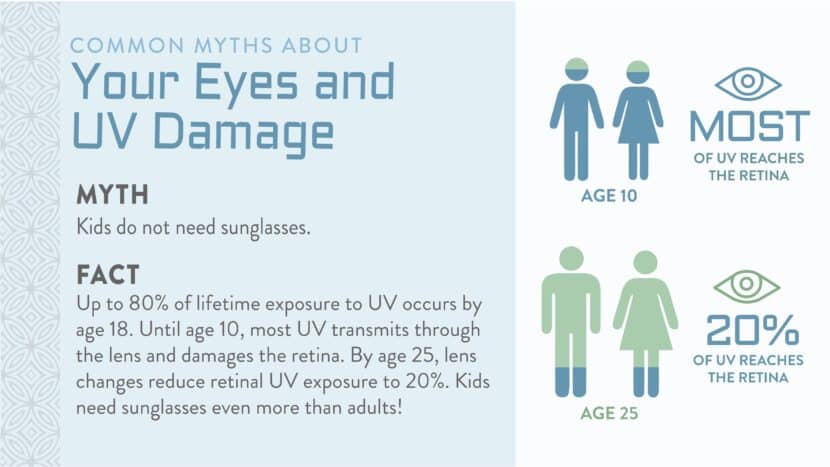
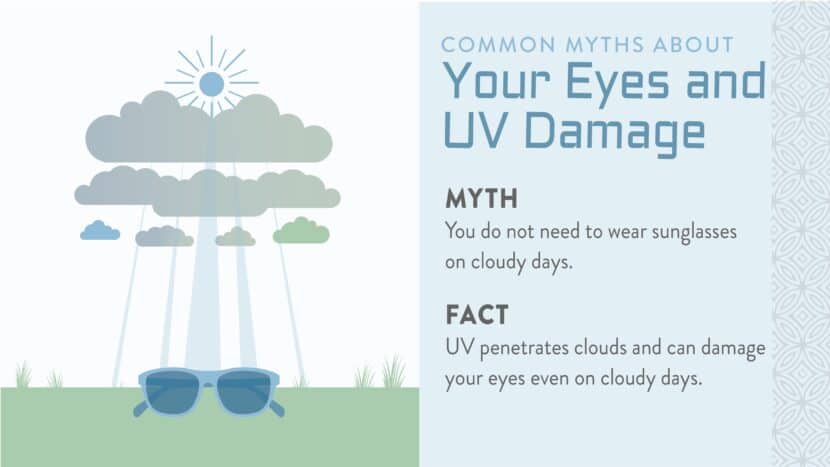
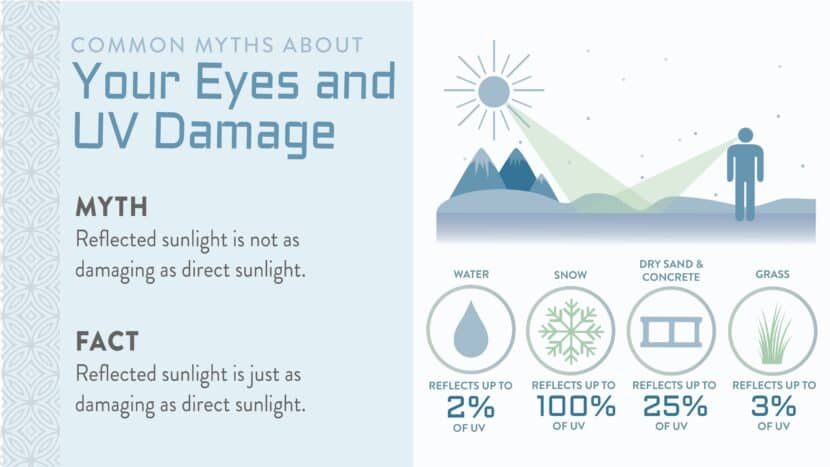
Our Favorites
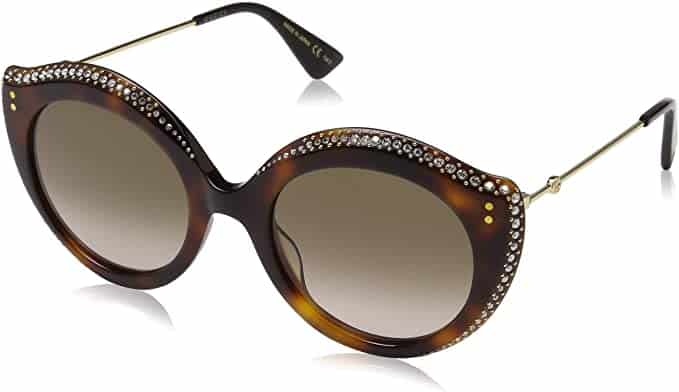
- Gucci GG0214S
- 100% UV protection
- Bling with brown-gradient tint
- Great for sun-bathing at the beach
- Houston Texans Flak 2.0 XL
- 100% UV protection
- Show support for your team
- Great for light-sensitive people: only allows 11% light transmittance
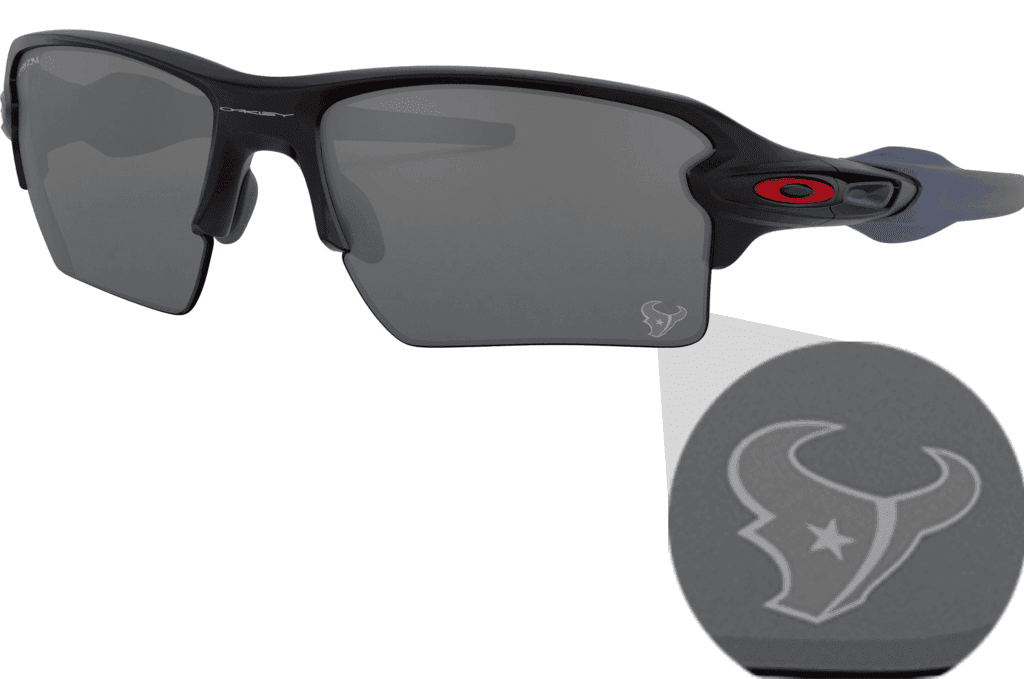
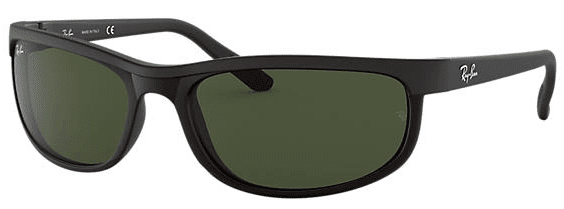
- Ray-Ban Predator 2
- 100% UV Protection
- Polarized grey with mirror coating
- Great for water sports, fishing, or any instance where there's glare
FAQs
Many people are cheered by a bright, sunny day, but the effect of all that sunlight on the eyes is a less sunny proposition. UV and glare can create a variety of issues, from dangerous “snowblindness” to irreversible disorders that threaten your eyesight. Here are some frequently asked questions about the role of sunglasses in protecting the eyes from harm. If you want to know more about choosing the right sunglasses, call us at (979) 985-5305 today.
UV stands for ultraviolet, a band of spectrum invisible to the eye. Ultraviolet light consists of UVA, UVB, and UVC rays. UVC rays are stopped in Earth’s atmosphere before they reach the eye, but UVA and UVB can both reach the eye and potentially damage it.
UV rays can cause proteins inside the lens to become opaque or cloudy, a condition known as cataracts. Cataracts can interfere with night vision, reduce your ability to see colors, and make reading difficult; they cannot be reversed, only removed. UV exposure can also cause retinal damage, changes in the eye tissues, and a temporary but irritating “sunburn” of the cornea called photokeratitis.
Choose glasses that claim to block at least 99 percent of UV rays — UVA as well as UVB. Look for label reading “UV 400,” since this designation means that the glasses block UV rays as small as 400 nanometers, providing 100 percent eye protection. Of course you need to protect your eyes from the glare caused by the visible spectrum as well. To accomplish this, select products that block 75 to 90 percent of visible light.
Polarized lenses are specially designed to filter out certain types of glare that tend to radiate upward from horizontal surfaces when sunlight bounces off of those surfaces. They are recommended for tasks such as boating, fishing, skiing, jogging, and driving. Most polarized lenses will bear a label identifying them as such.
We are able to provide you with a wide range of sunglass options. If you normally wear glasses to correct your eyesight you can order a pair of prescription “shades,” or you can order glasses that darken when exposed to bright light. Both options have advantages and disadvantages.
If you worry about light, including harmful UV, leaking in through sides or top of your sunglasses, wear a broad-brimmed hat to reduce some of this exposure. If you use prescription eyewear to correct your eyesight, you may also want to think about getting a pair of UV-blocking contact lenses in your prescription. Although UV-blocking contacts do not protect the eye from UV as well as sunglasses, they may be worn alongside a non-prescription pair of sunglasses for optimum eye protection.

